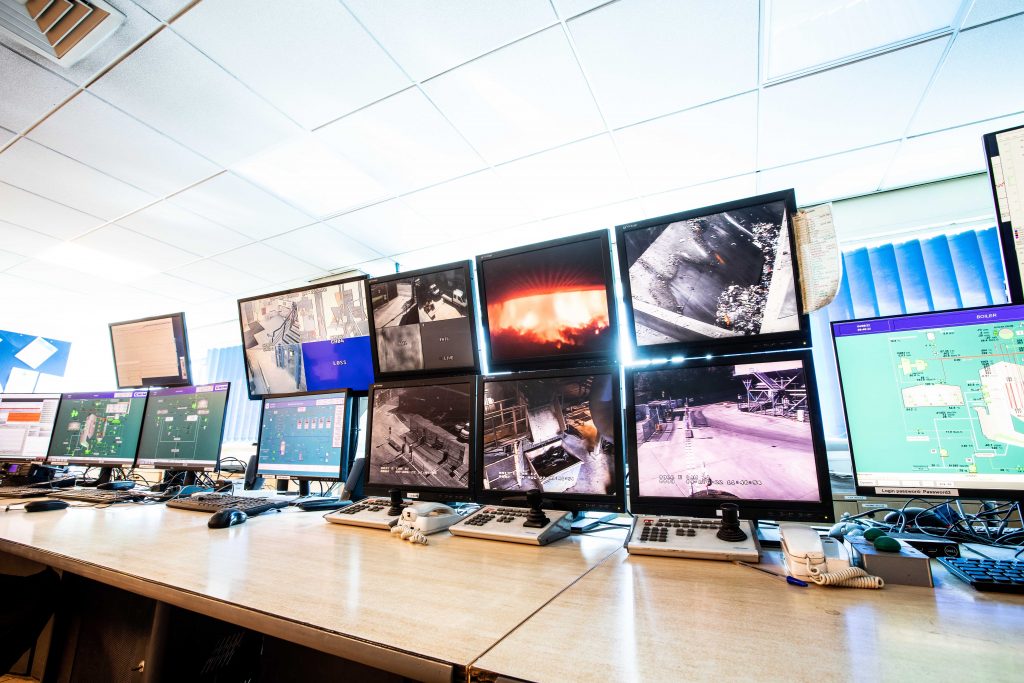 For the first time in the UK, Veolia on behalf of Sheffield City Council, are using the latest AI tool to extend the efficiency of one of the UKs largest, oldest and most successful district energy schemes in Sheffield. Following an extensive trial and integration phase, the data driven thermohydraulic modelling tool is now being used to optimise temperature and network pressure over the 44km long network. By taking real time data from across the network, including data collection from the individual heat meters that serve connected buildings, and predicting heat demand and weather patterns, the system is set to reduce peak loads by up to 20% and increase the heat delivery capability by 25%.
For the first time in the UK, Veolia on behalf of Sheffield City Council, are using the latest AI tool to extend the efficiency of one of the UKs largest, oldest and most successful district energy schemes in Sheffield. Following an extensive trial and integration phase, the data driven thermohydraulic modelling tool is now being used to optimise temperature and network pressure over the 44km long network. By taking real time data from across the network, including data collection from the individual heat meters that serve connected buildings, and predicting heat demand and weather patterns, the system is set to reduce peak loads by up to 20% and increase the heat delivery capability by 25%.
Operating since 1988, Sheffield’s District Energy Network supplies low carbon energy from the Sheffield Energy Recovery Facility which transforms non-recyclable household waste to generate heat supplies for the district heating scheme. Over 50% of the heat qualifies as renewable under the Renewable Energy Guarantees of Origin (REGO) scheme and is fed to over 125 commercial and public sector buildings including the Lyceum Theatre, Sheffield City Hall, Weston Park Hospital, the Universities and the Millennium Galleries.
To achieve the major increases in efficiency the AI software takes data inputs from multiple sources and sensors across the network, and combines this with external data, to provide full network modelling and scenario planning. The system then calculates potential heat losses in individual underground pipe sections, internal pipework in plant rooms and energy centres and optimizes the energy consumption of the buildings. This means common problems such as hydronic bottlenecks are avoided, which limits any potentially disruptive and costly retrofits on the underground heat networks, and improves fault tolerance and estimation of energy consumption.
Commenting on the extended capabilities from this technology, Donald Macphail, Chief Operating Officer – Treatment, at Veolia said, “In the UK, almost half of the final energy consumed is used as heat, and the domestic, commercial and public sectors account for two-thirds of this consumption for space heating and water heating . As we move to reduce climate impact we need to decarbonise these important heat requirements, and district heating systems are a proven technology to help reduce this carbon footprint. By integrating the network in Sheffield with the latest artificial intelligence we have advanced efficiency, and taken another important step towards a net zero future”
 In the UK Veolia currently manages the energy plant and networks across 60 sites and operates over 120 community heating schemes serving large campuses and hospitals. These distribute low carbon or renewable heat from combined heat and power plants, waste wood biomass and Energy Recovery Facilities. Globally the company currently operates around 600 district heating networks covering 7000km of heat mains.
In the UK Veolia currently manages the energy plant and networks across 60 sites and operates over 120 community heating schemes serving large campuses and hospitals. These distribute low carbon or renewable heat from combined heat and power plants, waste wood biomass and Energy Recovery Facilities. Globally the company currently operates around 600 district heating networks covering 7000km of heat mains.



